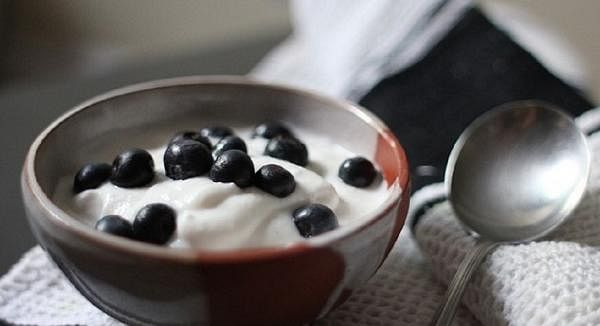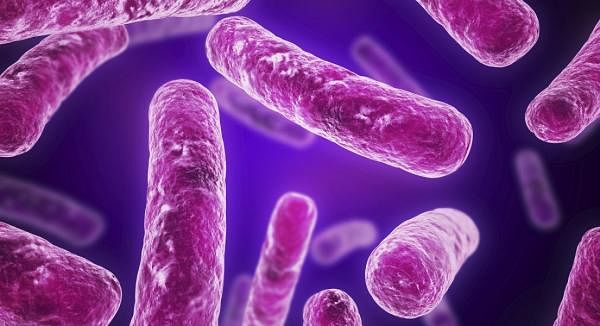Should Probiotics Be Taken at the Same Time as Antibiotics?
Why you can trust Nutri Advanced Every article on our site is researched thoroughly by our team of highly qualified nutritionists. Find out more about our editorial process.
Here in the Nutri Advanced nutrition office we frequently get calls asking us about probiotic supplementation and antibiotic use – and would we recommend probiotics concurrently or is there “no point” in doing so? We frequently recommend Saccharomyces boulardii to be used alongside antibiotic therapy, because, as a yeast, it’s not inhibited by antibiotics and may help with loose stools, a common side effect. But what about probiotic bacteria?
A study by Engelbrekston et al investigated the effects of a combination of 4 specific strains of probiotic bacteria on the fecal microbiota of subjects undergoing antibiotic therapy, and whether this probiotic mixture can minimise antibiotic disturbances. 40 subjects completed the study, and were administered amoxicillin/clavulanate with either probiotic mixture or placebo. The study took place over 48 days, with fecal samples taken on days 1, 7 and 14, followed by antibiotic therapy for 7 days. Further samples were taken on days 21 (after the antibiotics finished), 25, 34 and 48. The probiotics (or placebo) were started on day 14, the same day the antibiotics were started. The aim was to compare the similarity of the gut microbiota post treatment with the baseline measurements – essentially, the aim was to find out if the probiotic group had less of a disturbance to their gut microbiota than the placebo group.
The results showed that the antibiotics did, as expected, induce alterations in gut microbiota. They also showed that the disturbances were minimised in the probiotic group and that this group had a more rapid reestablishment of baseline microbiota. These findings suggest that this combination of probiotic strains may be of benefit in limiting antibiotic-associated disturbances in the gut microbiota, and promote a more rapid return to baseline. The strains in the study were L. acidophilus NCFM®, L. paracasei Lpc-37, B. lactis Bi-04 and B. lactis Bi-07®, strains that have previously been shown to have health benefits and a good shelf life. Though the mechanism of action was not investigated in this particular study, the authors hypothesised that the probiotic effect may be due to the metabolism of the supplemented bacteria, possibly by generating a substrate that may be a preferred fuel source or creating a better environment for the bacteria responsible for creating a stable microbiota.
And so to our original question of whether probiotics should be taken at the same time as antibiotics - the above study demonstrates that actually, yes, the combination of strains used in the study should absolutely be taken at the same time as antibiotics and may help to minimise disturbances to the gut microbiota, and reduce those all-to-frequent side effects. It also highlights the importance of using specific strains that have demonstrated benefits.
This website and its content is copyright of Nutri Advanced ©. All rights reserved. See our terms & conditions for more detail.
Nutri Advanced has a thorough research process and for any references included, each source is scrutinised beforehand. We aim to use the highest value source where possible, referencing peer-reviewed journals and official guidelines in the first instance before alternatives. You can learn more about how we ensure our content is accurate at time of publication on our editorial policy.
Most Popular Articles
-
7 Surprising Ways To Support Your Magnesium
If you are displaying signs of a magnesium deficiency, here are 7 ways to boost your magnesium levels that are easy to incorporate into your daily life. -
5 Best Vitamin C Supplements Picked By Our Experts
Learn more about the different types of vitamin C, the different benefits you get from different types, and what you get for spending more on a good supplement. -
Top 5 Vitamins For Energy And Tiredness Picked By Our Experts
The 5 best and most important vitamins for energy & tiredness including B vitamin food sources & best supplement forms for energy. -
Benefits of Myo-Inositol for Polycystic Ovary Syndrome (PCOS)
In this research review article, we take a closer look at a lesser-known natural compound called myo-inositol that has been found to have significant potential to improve many of the prevalent features of PCOS. -
Top 10 Reasons to Give Your Kids Omega-3
Read the top 10 reasons that kids should have plenty of Omega-3- an essential fatty acid- including for depression, brain function, sleep & reading/maths skills.











